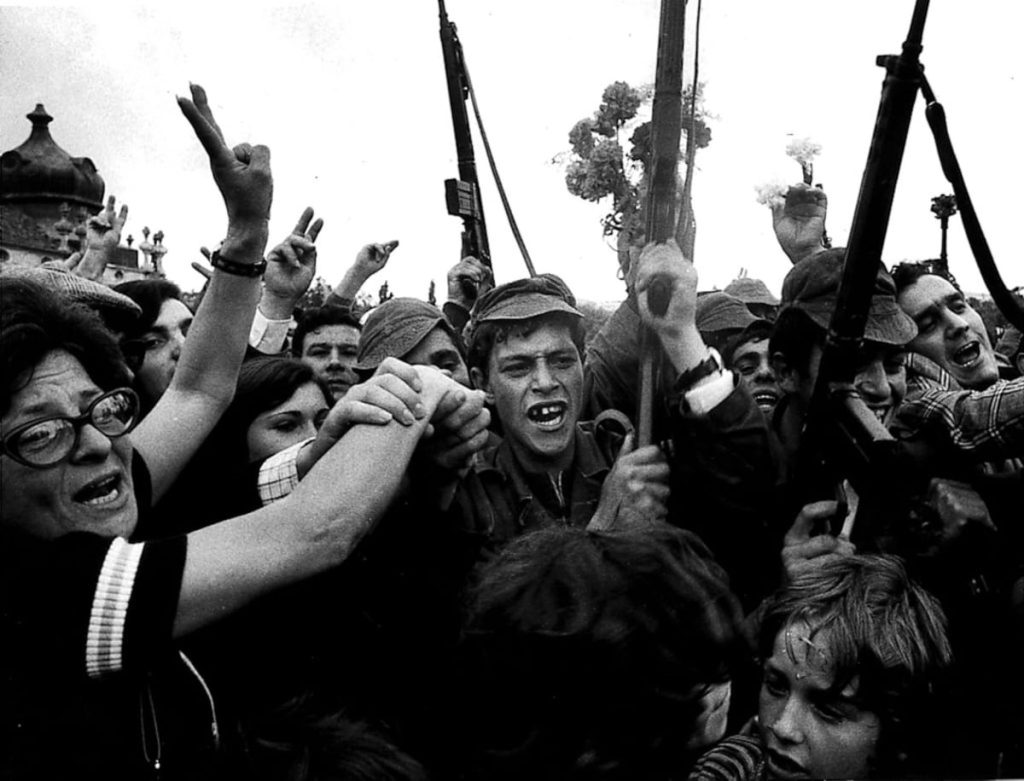On April 23rd, two days before the 50th anniversary of the Portuguese Revolution, the Council of Ministers approved the declassification of three secret documents from the Ministry of Foreign Affairs that reflect how Francoism coped with the fall of Marcelo Caetano, dictator of the neighboring country and successor of Oliveira Salazar, creator of the Estado Novo 41 years earlier. Unlike most Western countries, Spain lacks a law that automatically declassifies secret documents after a certain number of years and still operates under Francoist legislation, which keeps them hidden forever unless the government decides to bring them to light. The government has now declassified two telegrams sent on April 26 and 28, 1974, by the Ministry of Foreign Affairs to the Spanish Embassy in Lisbon, and a note sent on May 31 to the same ministry by the diplomatic representation in Lisbon.
The impact of the Portuguese Revolution was profound in Spain, both due to the fear it instilled among the Franco regime officials and the hope it stirred among the democratic opposition. The dictatorship commissioned a survey in October 1974 among 1,100 people in Madrid and Barcelona to “know the opinion of the population on the political changes in Portugal since April 25, 1974.” The majority did not have a defined opinion, but of those who did, the percentage sympathizing with the events in the neighboring country was higher than those who viewed it unfavorably. The newly declassified documents shed light on the diplomatic responses and actions of the Franco government towards the new Portuguese authorities after the revolution.
The documents reveal instructions given to the Spanish Charge d’Affaires in Lisbon regarding the recognition of the National Salvation Junta, created to oversee the political transition after the fall of Caetano. Despite not explicitly recognizing the new authorities, the Franco government indicated implicit recognition through the continuity of diplomatic relations between the two countries. The declassified telegrams and notes provide insights into the cautious approach taken by the Franco regime during the Portuguese Revolution, as well as the interplay between diplomatic strategies and political considerations in the context of the era.
The declassified materials also include a report from the Spanish Embassy in Lisbon on statements made by the Count of Barcelona, father of the future King Juan Carlos, who was exiled in Estoril at the time, about the democratic path that Portugal had embarked on. The Count expressed his reluctance to leave Portugal, where he had lived for many years and admired, now that it was transitioning towards democracy, a cause he had always advocated for his own country. The report highlighted the Count’s stance and the pressures he faced from certain political sectors in Spain to return amidst perceived dangers due to political transformations in Portugal.
The declassified documents offer a glimpse into the interactions and dynamics between Spanish and Portuguese political figures during a pivotal moment in history. From diplomatic responses to personal statements, the materials provide a window into the complexities and nuances of the relationships between the two neighboring countries during a time of significant political change. The declassification of these documents contributes to a better understanding of the historical context surrounding the Portuguese Revolution and its reverberations in Spain, shedding light on a period of transition and uncertainty in Iberian history.















